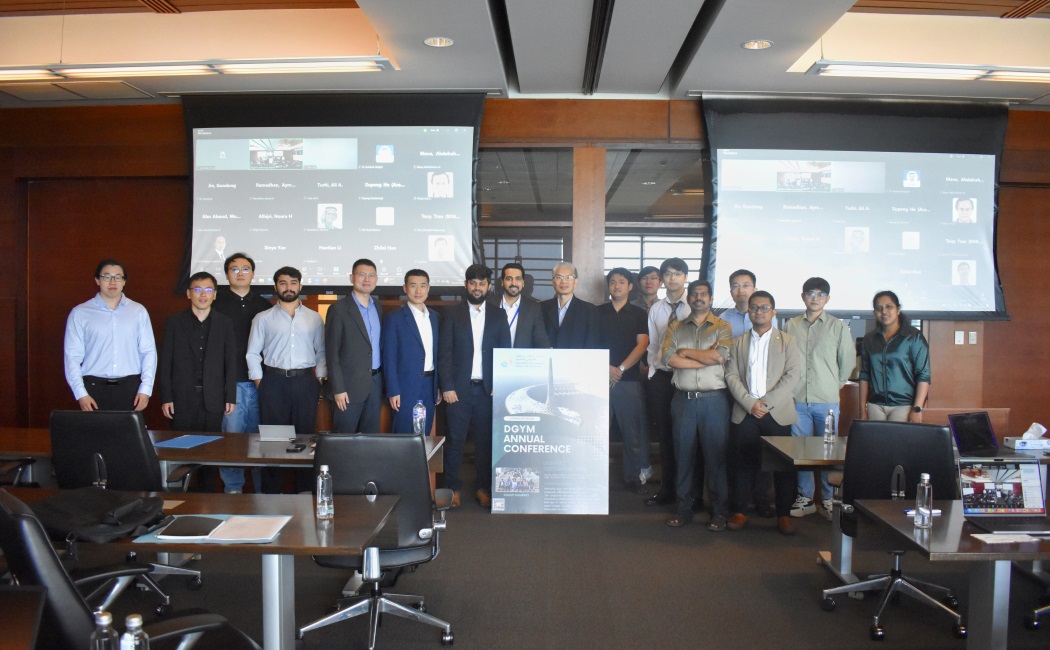
28 September, 2025
The DGYM research group at King Abdullah University of Science and Technology (KAUST) held its Annual Conference on September 28, 2025. The one-day symposium brought together researchers and industry professionals to share recent progress in numerical simulation and AI-enhanced modeling for subsurface energy applications.
Connecting Academia and Industry
The conference adopted a hybrid format, welcoming both on-site and online participants. Representatives from Sinopec attended in person at KAUST, while participants from Saudi Aramco, Zhenhua Oil, and other organizations joined virtually. This format facilitated exchange between academic researchers and industry practitioners working on carbon storage, hydrogen storage, geothermal energy, and oil and gas recovery.

Prof. Bicheng Yan opened the conference with a welcome speech, introducing the day's program and the symposium's goals for fostering collaboration.

Technical Program
The symposium was organized into three sessions throughout the day:
Session 1: Molecular & Pore-scale Simulation
The morning session covered fundamental studies at molecular and pore scales:

Session 2: Reservoir Simulation Development
The late morning session focused on reservoir simulation tools and methods:

Session 3: Deep Learning for Reservoir Simulation
The afternoon session explored machine learning applications:

The day concluded with a panel discussion, providing an opportunity for questions and informal exchange among participants.